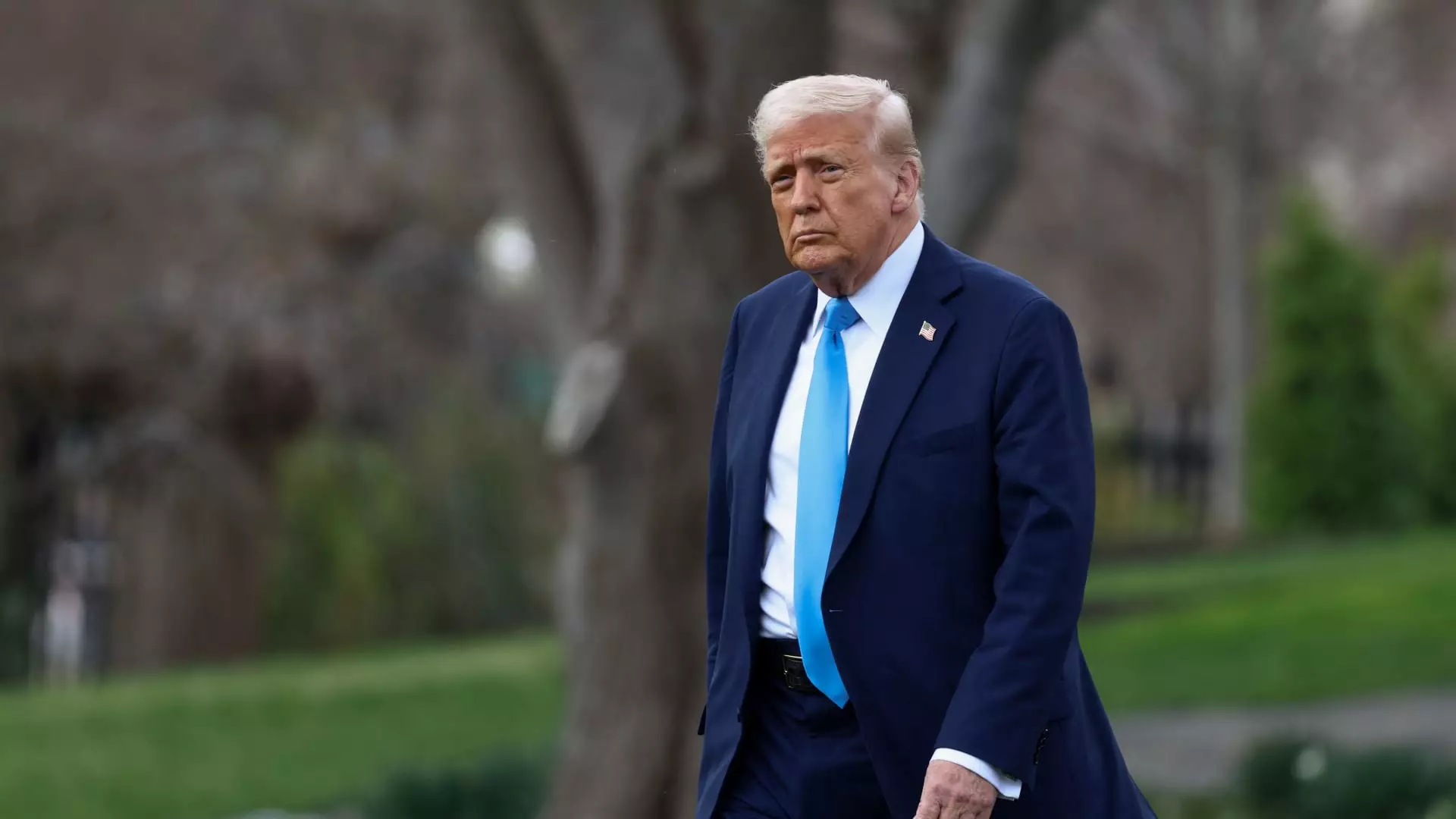The recent comments by President Donald Trump regarding Russian President Vladimir Putin’s assessments of Ukrainian President Volodymyr Zelenskyy light an intense spotlight on the unpredictable nature of American leadership. Trump’s outrage echoes through the airwaves as he proclaims his irritation at Putin’s claims of Zelenskyy’s diminished credibility. This vehement reaction raises questions not only about Trump’s stance towards international diplomacy but also about the understanding of democratic leadership on a global scale. It’s disconcerting to reflect on a leader whose ego seems to outweigh the fundamental requirements of political delicacy and responsible statecraft.
It is particularly troubling when Trump posits that the solution to potential conflict involves slapping tariffs on Russian oil. The idea of punishing an entire nation’s economy as a bargaining chip could ripple through global markets and push allies to reconsider their economic interactions with the U.S. Because while he seemingly flirts with escalating tensions, the ramifications could spiral far beyond his rhetoric. The unpredictable consequences of such a move might undermine international alliances and precipitate both economic and political instability.
War Talk and the True Cost of Leadership
In a parallel discourse, Trump has concurrently taken a hard line with Iran, threatening military action if negotiations regarding its nuclear program fail. The notion of “bombing” as a resolution is a disquieting call to arms that disregards potential loss of life and regional stability. It’s indicative of a broader tendency within Trump’s foreign policy to prioritize aggressive posturing over nuanced engagement. Such belligerent rhetoric seems more aligned with a reality television series than the grave responsibilities inherent to presidential duties.
Critics of Trump often point to his previous description of Zelenskyy as a “dictator,” highlighting a seemingly superficial grasp of complex geopolitical realities. His narrative often flits between admiration for authoritarian leaders and disdain for democratically elected officials, blurring the lines of accountability and ethical governance. This inconsistency raises caution banners about America’s ideological commitment to democracy and human rights when led by a president whose policy seems to favor might over moral obligation.
The Risk of Miscalculation
The dangers of Trump’s blustery approach are vividly illustrated by the unfolding conflict in Ukraine. His proclamations of imposing sanctions or economic repercussions may seem like powerful tools, but they can provoke retaliatory measures from Russia that neither the U.S. nor Europe may be prepared for. Politically, a trade war with one of the largest producers of oil could set off a chain reaction, impacting the United States’ own economy and further entrenching divisions in international relations.
Further complicating the dynamics, the concept of a transitional government in Ukraine, as suggested by Putin, conjures images of destabilization and power grabs that could undermine persistently fragile democratic frameworks. Trump’s apparent willingness to entertain such notions without clear evidence or consideration for their implications indicates a troubling lack of foresight in global governance.
Ideological Schizophrenia
The duality of Trump’s stances raises an ideological schizophrenia that is incongruent with a coherent foreign policy. On one hand, he proclaims the need for peace in Ukraine, while on the other, he threatens to unleash aggressive tariffs and military action—actions that only deepen the quagmire. The muscular diplomacy he espouses crushes delicate negotiations and renews hostilities rather than fostering cooperation and peace.
Furthermore, Trump’s insistence that “the anger dissipates quickly” if Putin “does the right thing” reveals an almost transactional view of international relations, oversimplifying the complex centuries-old grievances that permeate such conflicts. This perspective not only undermines the significance of diplomacy but also diminishes any hope of genuine reconciliation.
Trump’s foreign policy antics serve as a dire warning of where impulsive and emotionally driven decision-making can lead. Rather than building constructive alliances and advocating for collective security, his approach risks pushing the global community closer to the precipice of chaos, raising questions about the very future of international diplomacy in an increasingly interconnected world.

Leave a Reply